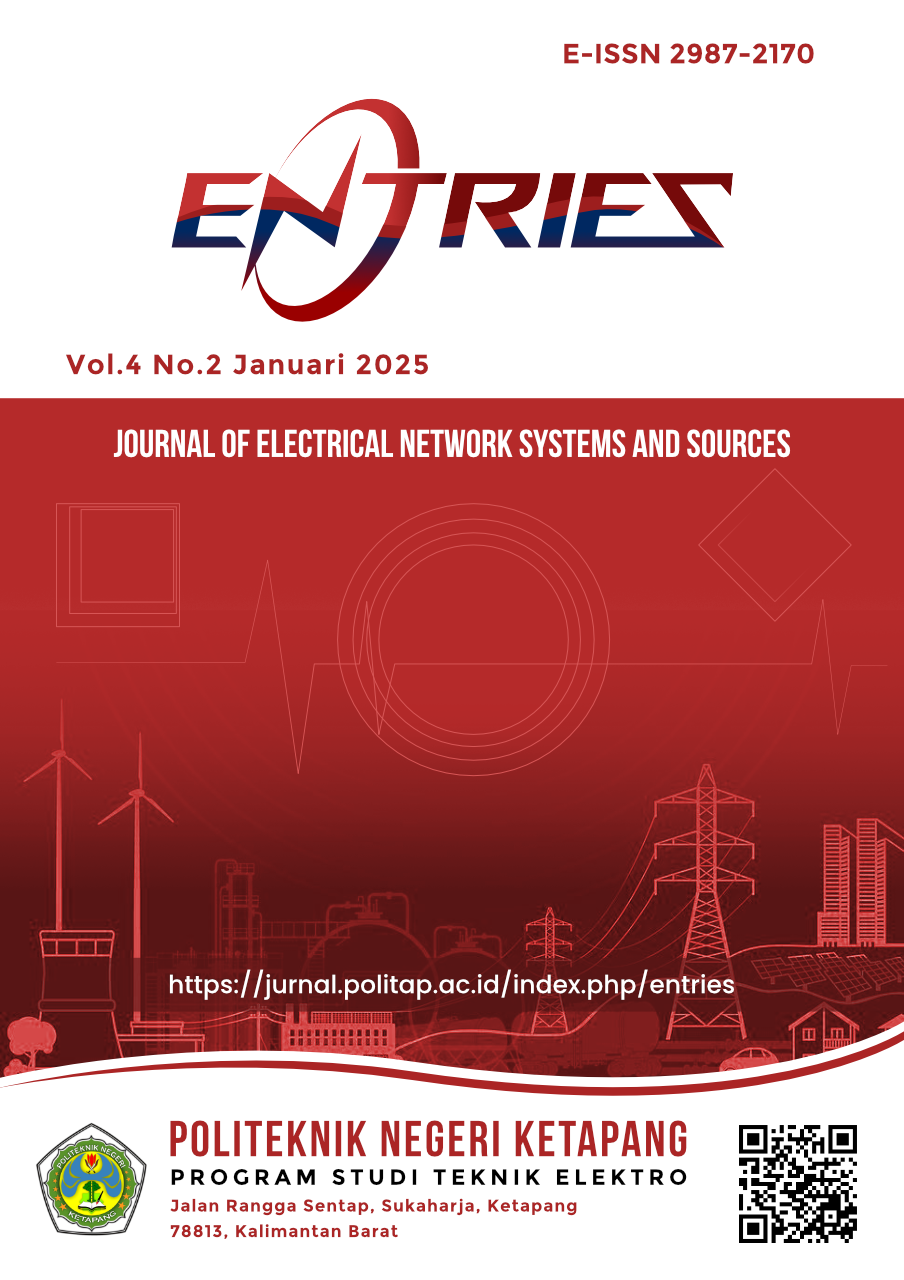AUTOMATIC CONTROL SYSTEM OF PLTS AND PLN ON ELECTRICAL LOADS IN IOT-BASED ROBOTICS LABORATORY
 https://doi.org/10.58466/entries.v4i2.1917
https://doi.org/10.58466/entries.v4i2.1917
Keywords:
PLTS, Sistem Hybrid, Automatic, ATS, Renewable Energy, IoTAbstract
The Department of Electrical Engineering has a Solar Power Plant (PLTS) in the robotics laboratory; however, its utilization is not optimal and is still highly dependent on electricity supplied by the national electricity grid, which poses risks such as unexpected power outages. This research aims to optimize the utilization of renewable energy through an Internet of Things (IoT)-based automatic control system. This system uses an Arduino Uno as the main microcontroller and an ESP32 to transmit data to the ThingSpeak platform. The PLTS serves as the main power source, while the PLN serves as a backup. The system automatically switches the power supply to PLN when the PLTS battery voltage drops below 10.8 V and switches back to the PLTS when the voltage exceeds 13.2 V. Data such as battery voltage, load voltage, current, and load power are displayed on an I2C LCD and visualized in ThingSpeak. Test results show that the system operates as designed, with sensor readings in accordance with manual measuring instruments, and the power supply switching occurs stably in just 1 second. After two days of testing, the system successfully reduced dependence on PLN and maximized the utilization of solar power to power student laptops in the robotics laboratory.
References
D. Silalahi, “Solar PV Resource Assessment for Indonesia’s Energy Future,” Solar Energy, 2021.
Direktorat Jenderal Ketenagalistrikan, Kementerian ESDM, “Tujuh Strategi Pemerintah dalam Pengembangan Ketenagalistrikan,” ESDM, Nov. 2020.
B. Risky, A. Syakur, dan Y. A. A. Soetrisno, “Perancangan Prototipe Alat Ukur Tegangan Ujung Feeder Menggunakan Metode Pembagi Tegangan,” TRANSIENT, vol. 10, no. 1, Maret 2021.
M. A. S. Antara dan I. W. A. Suteja, “Analisis arus, tegangan, daya, energi, dan biaya pada sensor PZEM‑004T berbasis NodeMCU ESP8266,” *Patria Artha Technological Journal*, vol. 5, no. 1, Apr. 2021.
H. Suryantoro dan A. Budiyanto, “Prototype Sistem Monitoring Level Air Berbasis LabVIEW & Arduino sebagai Sarana Pendukung Praktikum Instrumentasi Sistem Kendali,” Indonesian Journal of Laboratory, vol. 1, no. 3, hal. 20–32, 2019.
N. Ulfa, J. Julaipah, dan A. F. A. Anggoro, “Pengaruh nilai tegangan masukan terhadap regulasi tegangan pada IC L7805 sebagai positive voltage regulator,” *Media Elektrika (TRANSIENT)*, vol. 11, no. 1, Maret 2021.








 This journal has been indexed by:
This journal has been indexed by: 

